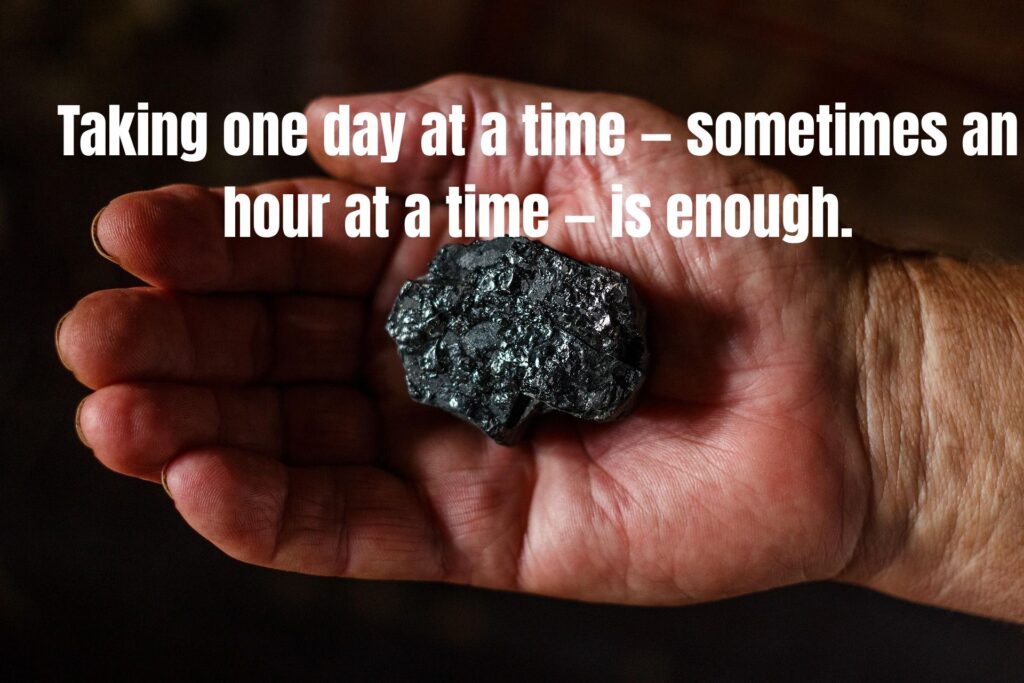Life is so hard at times. It is nearly impossible to find the right words when a person you care about is in distress. You want to help. You want them to feel better. But what do you say?
As it is reported in a study featured in The New York Times, emotional validation is the most effective in terms of helping a person. This implies that they should be accepted and not denied by them. Short Messages for Someone Going Through a Hard Time Encouraging words with some real compassion can go a long way in the healing process of a person.
We have collected 99 short messages that you can send to loved ones, friends and family members who are in need. Such positive messages are in the form of texts, social media posts, hand notes or spoken words. You also can apply them as affirmations to yourself in difficult situations. If you are a Brightnis Quotes lover then visit this link.
Why Words of Encouragement Matter During Hard Times

The Science Behind Supportive Messages
Encouraging messages and supportive texts do not simply look good. Science demonstrates that they make actual difference in the way people handle the challenges in life.
It has been shown that positive affirmations are able to decrease stress and enhance mental health. When one is given encouraging words in hard moments, his or her brain interprets the words as a form of real support. This makes them feel not so isolated.
Emotional validation informs a person that his or her feelings are important. It provides them with a secure environment in which they can be vulnerable without reproach. Research indicates that individuals that are given regular emotional support bounce back to their feet quickly after failure and trauma. If you want to read Messages For The Loss Of Husband then visit this link.
What Makes a Good Encouraging Message
Words of encouragement do not always hit the nail on the head. There are specific principles to the best compassionate communication.
First, confirm the emotions and then give solutions. Telling someone, I know you are suffering, is better than saying, Everything happens to a reason. One acknowledges reality. The other dismisses it.
Second, be specific. Rather than, “Let me know, if you need anything,” ask, Can I bring dinner Tuesday? The genuine commitment to provide support takes place in the specific offers.
Third, respect space and borders. Other individuals are secret sufferers. Non-judgmental support involves acceptance of their coping process though it might not be what you would want to do.
Fourth, avoid comparison. Short Messages for Someone Going Through a Hard Time It does not help to say that the other people are worse off. Every individual pain will be honored no matter how trivial it is compared to the struggles of other people.
Finally, follow through. A single message is good, and with regular check in messages it is a sign of sustained interest. This instils confidence and an effective support system.
Beyond Words: Other Ways to Show You Care
Positive messages are not the only way of encouragement. Human relationship is not only done through action.
You can also feel proud of your struggling friend by sharing the achievements with other people to make them feel valuable. Share about their victories on social media. Share with friends what is good about them. This produces a web of affirmations.
Send messages and affirmations through text often. Even a mere thinking of you message can make a whole day better. These subtle gestures are non-coercive.
It is about being there than saying the right thing. Sit quietly with someone. Together watch their favorite show. Other times the most assistance is needed with no words.
Physical gestures help too. Bring groceries. Walk their dog. Deal with a task that they feel overwhelmed with. These activities are acts of showing compassion by serving. If you want to read Quotes and Messages for the Loss of Pet then visit this link.
99 Uplifting Messages for Someone Going Through a Hard Time

Messages of Validation and Acknowledgment
These messages help someone feel seen and heard. Emotional validation forms the foundation of meaningful support.
- The world is better because you are in it.
- I admire your ability to stay optimistic even when things are hard.
- Better times are ahead; I can’t wait to experience them alongside you.
- I know you’re hurting — and that’s valid. I’m here to listen actively or help in any way I can.
- You may not want to talk much right now, and that’s okay. But journaling might bring powerful reflection. Can I offer some prompts?
- Even the worst days are just 24 hours; there is hope for tomorrow.
- If all you did today was wake up, that’s enough, and I’m proud of you.
- Failure usually happens because you took a chance — that’s incredibly brave.
- Think about how far you’ve come. Take a minute to celebrate progress.
- Would you like me to check in on you tomorrow and the following day?
- Remember: This is what you’re going through, not who you are.
- Therapy has helped me through tough times like this — can I help you find the same? I’ll even go with you if that helps.
- What’s meant to be will always find a way — in love, in career, in friendship.
- When things don’t work out, the universe might be redirecting you to something better.
- Just because you’re going through this doesn’t mean you experience it alone — and you won’t.
Messages About Self-Worth and Self-Compassion
These messages remind people to practice self-care and self-kindness during difficult periods.
- Don’t forget to be kind to yourself; you deserve it.
- Could we reframe situations? One day, you’ll look back at this time and see it as just a small moment in your life’s timeline.
- Take a few deep breaths; visualize a better tomorrow with each exhale. Meditation might help.
- Consider what you can control in this situation — and if you can’t wait for an opportunity, let’s create opportunities.
- Moving forward can be slow and hard, but speed isn’t what matters. Progress over speed always wins.
- Let it out. Let it all out.
- Even when you don’t believe in yourself, remember that I always do.
- Is there anything we can learn from this moment through introspection?
- You are worthy and deserving of everything good the world offers.
- Taking one day at a time — sometimes an hour at a time — is enough.
- Rest and recharge; what feels impossibly hard tonight might feel easier by morning.
- Remember the self-respect you deserve; don’t settle for anything less.
- Asking for help is a sign of strength, and I’m here. I always will be.
- Don’t let this experience shrink you down. You deserve to take up space.
- Your feelings deserve to be felt, acknowledged, and seen.
Messages of Hope and Perspective
These uplifting messages help shift perspective while honoring current pain.
- Instead of wondering what could go wrong, ask yourself: What if everything worked out perfectly?
- Disappointment from others happens — how can we show up for someone differently now?
- Can you name three traits you admire about yourself? Take a moment to enjoy each one.
- Pain requires vulnerability, and even though it hurts right now, I’m proud you allowed yourself to be seen.
- What would 15-year-old-you say if they saw how far you’ve come?
- I see you, I celebrate you, and I hold space for you.
- Tell me all the heavy things you’re feeling — then let’s work through them one by one.
- It’s time to let go of your suffering, guilt, or worry.
- What do you need right now? How can I provide safe space for you?
- I forgive you; I’d love if you could forgive yourself too.
- What would “future you” say right now?
- Please remember self-care: Nourish your body, rest, and spend time with those who uplift you.
- What are some recent wins — both large and small — we can celebrate wins together?
- Let’s get out of your head. Go for a walk. Do an activity together. You might feel differently afterward.
- The old saying is true: Comparison truly steals joy.
Messages About Strength and Resilience
These messages celebrate inner strength and resilience during challenging times.
- You are never “less than.” You are more than anything I could have hoped for in a friend.
- We’re all humans trying our best each and every day.
- What is your gut telling you right now?
- Unclench your jaw. Loosen your shoulders. Close your eyes. Practice breathing exercises.
- The world is hard, but don’t let it affect the softest, most vulnerable parts of you.
- You are worthy of asking for help — this isn’t your burden to bear alone.
- Would you like advice or just an ear to listen actively? Whatever it is, I’m here.
- I’m sending you something to help lift your spirits; I hope it brings a smile.
- Are there recurring themes that have come up you’d like to share?
- There’s nothing I can say, but maybe something I can do — what would be most meaningful?
- I wish you saw yourself the way I see you; you’re incredible.
- Talk to yourself like you would your best friend — would you say these harsh things to me?
- Your resilience is admirable — but you don’t have to weather every storm alone.
- Your ability to feel so much — when it’s easier to be numb — is a gift.
- I am so very sorry that’s happening; I’m sending you all the love and strength I can.
Messages of Presence and Support
These messages emphasize being present and offering support in meaningful ways.
- May I give you a hug?
- Sometimes setting boundaries or removing toxic relationships — even when difficult — is the best self-care.
- You don’t always have to keep it together. I give you permission to fall apart sometimes.
- I’m saying this with love, but it might be time to seek professional help and support.
- You are not your illness.
- Call me if you need to talk, but I’m also happy to come be with you in person.
- It’s okay to not feel okay.
- Sadness and disappointment are human; it’s how we respond that matters most.
- Do something nice for yourself: Take a warm bath. Reread your favorite book. Put on your favorite album.
- Don’t worry about other things right now; just focus on caring for yourself.
- I want to respect space but also give you opportunity to share — quiet or conversation? Either way, I’m here.
- You’ve always helped me through hard times, and we’ll get through this one together too.
- Can I tell you the three traits I love most about you?
- This is a safe space, and I’ll always respect the trust between friends we share.
- I know you can handle this alone, but that doesn’t mean you should. What can I shoulder?
Messages of Patience and Healing
These messages honor the grieving process and healing journey without rushing.
- No need to respond; just a quick message to say I love and care about you.
- This too shall pass.
- There is no right or wrong way to grieve. There is no timeline either.
- There’s often no benefit to placing blame — what can we all do now to move forward?
- Just because something didn’t work out right now doesn’t mean it never will — keep the faith.
- Healing is the long game. It’s a long process, and it’s okay to take your time.
- There are so many parts of you to celebrate, even if you can’t see it right now.
- You’ve always been a beacon of light in dark times; may I be one for you?
- Want to sit in silence together?
- I’ve been in your position before, and what helped me most was trying new coping strategies. Is that worth trying?
- This is a painful situation, I know. But like everything in life, it’s also a temporary hardship.
- Yep, this sucks. No sugarcoating it.
- Would you like to snuggle my pet? Furry friends always help with emotional well-being.
- This ending is a whole new beginning for the rest of your life — what exciting opportunities await?
- You did the brave, courageous, hard thing — I admire you so much for it.
Messages of Love and Unwavering Support
These final messages emphasize unconditional love and lasting commitment during overcoming adversity.
- If something hurts when it ends, it was probably pretty great when it was happening. Can we relish in that memory?
- I wish for things to be easier for you. And soon.
- I can imagine that was very difficult.
- You don’t have to explain yourself to me. I believe you.
- You don’t have to talk until you’re ready. Or ever. I’ll be here as support without pressure either way.
- You’ve survived 100% of your worst days so far. You’re a champion.
- I don’t think what you’re saying about yourself is true, and here’s why.
- Try not to worry too much about things that haven’t yet happened — what can we focus on today?
- You don’t have to have all the answers or figure it out right away. This may take time.
And one more for good measure:
- I love you.
How to Use These Messages for Someone Going Through a Hard Time

Personalizing Your Message
These brief messages are most effective in accordance with a particular relationship. Alter the wording to suit your usual speech. Include information that indicates that you are listening to what they have to say.
When a friend is fond of hiking, say WW Want to hike it? in place of general “Let’s hang out.” This particularity shows real concern and sympathetic language which is adapted to them.
There is authenticity and not perfection. A message that is a bit bumbling and yet sincere is better than a polished but cold-blooded message. When you are actually making an attempt to relate, people detect it.
When to Send Encouraging Messages
Text encouragement of a crisis in a second of need but do not go at that. The recovery process is long and it is necessary to have people to support one not only at the outset.
Visit on hard anniversaries or milestones. The first anniversary of a loss. The day a divorce takes place. These are the moments that strike even more than anticipated.
Constant care is demonstrated by random text messages of affirmation and reminders. Even a Tuesday morning text saying I am thinking of you can brighten up the whole week of a person. The spontaneous messages exhibit a permanent attitude towards their emotional health.
Do not wait till they contact you. Suffering people tend to be a liability. Active communications eliminate the need on their part to demand assistance.
What to Avoid When Reaching Out
Some of the phrases are more damaging than good despite the good intentions. The reason is not to be toxic positivity, such as: Every reason is a blessing or: See the bright side. These dismiss real pain.
Do not apply their plight to other people. “At least you’re not…” minimizes their experience. Pain isn’t a competition. The difficulties of life of any person are worth recognition.
Do not make it personal. When I had an experience like that… can do later, but first get at them. Active listening implies that they focus their experience, not yours.
Never give unsolicited advice, unless they request. Occasionally individuals only require emotional confirmation, not resolutions. Offer advice or simply a listener: Ask “Do you want advice or simply someone to listen? before going into help strategize mode.
Following Up After Your Initial Message
A message is important, but a continual support is more important. Pay frequent visits but without being obtrusive. A weekly “How are you doing?” text maintains connection.
Provided that they do not react immediately, do not take it personally. Communication is tiresome because of depression and grief. Send one more message in a couple of days: No pressure to answer. Simply to tell you that I am thinking of you.
Acknowledge the need of space. Others are privitizers. Mean it when you say to them I am here when you are ready. So every now and then check in to make them aware of the offer.
Deeds are more effective than confessed texts. Drop off groceries. Send a care package. Handle a practical task. These tangible actions are gestures of expressing compassion by serving.
Keep in mind that a healing process is not linear. They may appear to be good one week and bad the other. Be non-judgmental and have their backs all through their healing process.
The Power of Simply Showing Up

Instead of having to be perfect, the short messages of an individual in a bad situation are not required. They just have to be genuine. It is found that compassionate communication, which provides emotional support, produces actual change in the coping process of people with struggle.
These 99 motivating messages provide you with jump starts, not scripts. Adapt them. Make them your own. Include information about your relationship and about their situation.
It is always good to keep in mind that encouragement words need to be accompanied by action. Presence, support, and providing a safe space are more important than effective word use.
You can call today in case you have been thinking of someone struggling. Forward one of these inspirational messages. Show empathy. Make them realize that they are not the only ones who are hurting.
Since it only takes one short message sometimes to remind a person that there are brighter days ahead and that there are people in his life who are interested enough to come see him through his worst times.

Welcome to Brightnis! I am the admin and creator of this platform. I love questioning ideas and exploring different situations. My goal is to encourage critical thinking and help people see things from new perspectives. Join me in discussing thought-provoking topics and finding unique solutions to everyday challenges!















